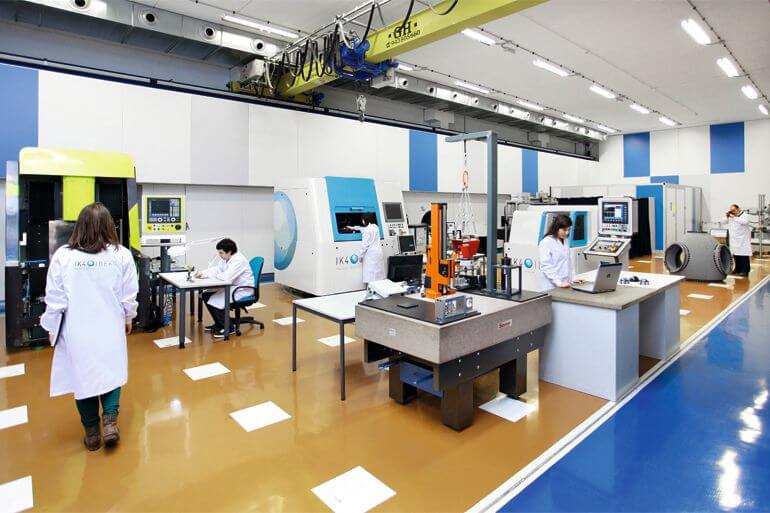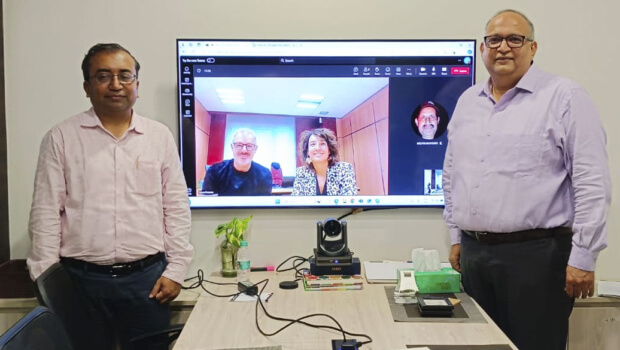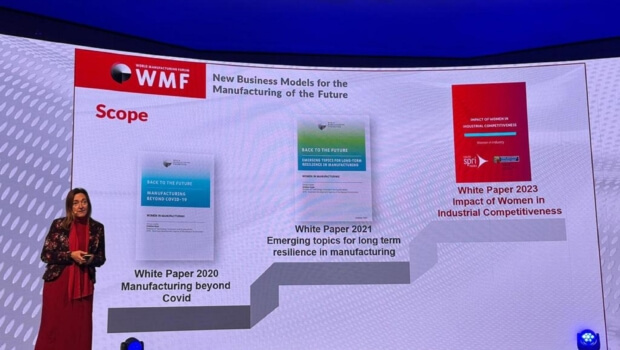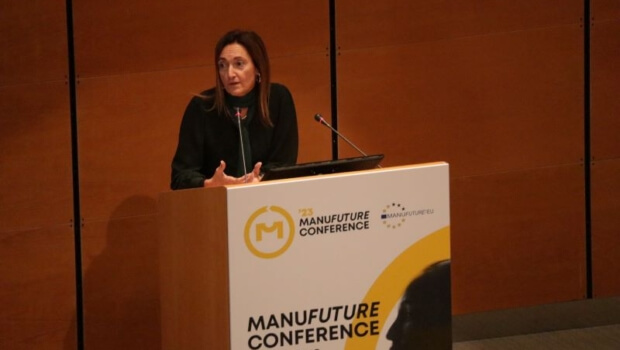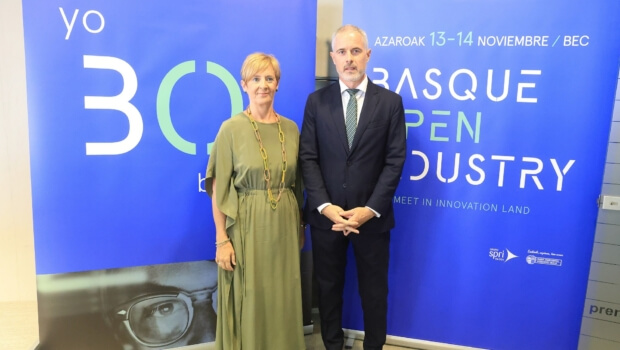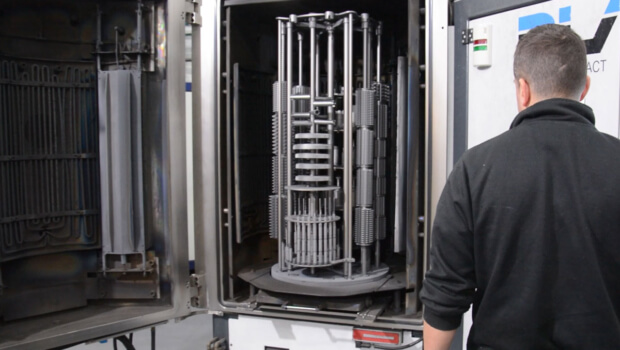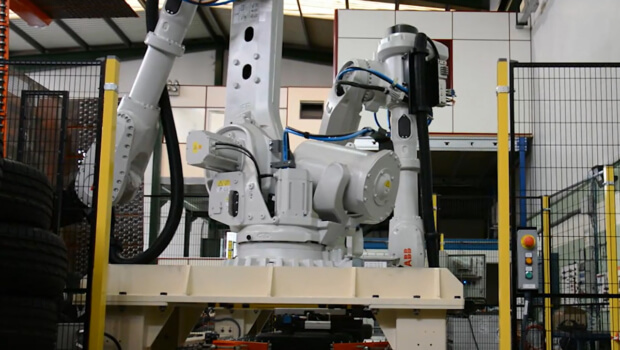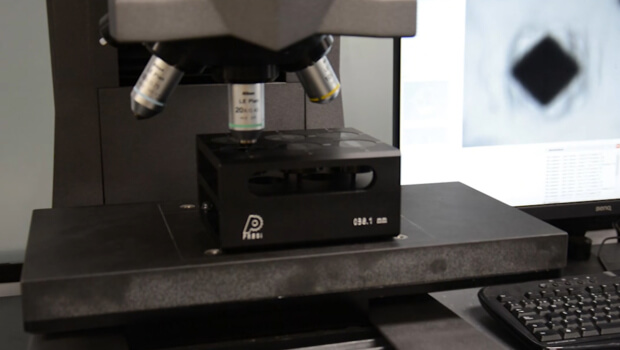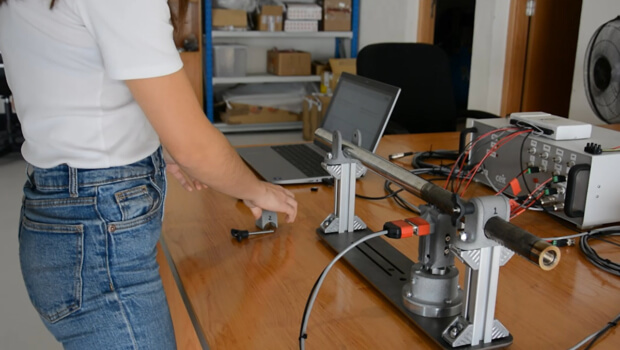Intelligent and connected machines: Defectology and surface-finishing
Defectology and surface finishing, are two of the most important aspects in the area of grinding. Some types of surface defects that generate rejection in machined parts are “lead error” and “waviness” resulting in a loss of precision in the manufactured parts, which is critical for companies in sectors such as the automotive and aeronautical industries. The former refers to shape and dimensional errors due to the uneven bending that the part suffers along the process, while the latter, surface waviness, is a consequence of vibrations caused by noise and friction in the joint area between shafts and bearings during grinding, due to the low rigidity of the parts.
The Basque Digital Innovation Hub, coordinated by SPRI Group, has the tolls and knowledge for industrial companies to be able to correct these faults and defects during the manufacturing process and not after, avoiding the trial-and-error method. Taking this approach results in savings in production costs, greater efficiency, and fewer returns from customers, among others.
The IMH provides a high-precision grinding machine for external and internal grinding operations. With a natural granite bed and linear motors, precision and thermal stability is guaranteed, working at peripheral speeds of up to 140 m/s with superabrasives and 60 m/s with conventional abrasives. With this technology an optimum surface finish is now compatible with high-speed processes. Through a user-friendly software interface developed by DANOBAT, BDIH customers can easily programme grinding operations and make use of the automatic wheel balancing system.
The node, with this asset, is able to provide your company with: analysis of grinding processes and search for parameters to optimise performance in specific industrial applications, training activities related to grinding technology for company technicians, and the execution of experimental grinding and diamond grinding tests to obtain process data, such as performance, statistical process analysis, etc.
IDEKO, for its part, has an R&D cell for high-precision grinding processes on small-sized parts for those sectors with high dimensional and surface quality requirements, such as the automotive, optical, medical, energy, aeronautics and space sectors.
It is composed of three machines; a horizontal cylindrical grinding machine equipped with a double rotating head, a cylindrical grinding machine for external, internal and face grinding, and a high-capacity centreless grinding machine, which, when connected to each other, can work independently or together to achieve a wide variety of processes, jobs and geometries. The cell is equipped for the measurement of vibrations, forces and temperatures, as well as working parameters, all transferred to the cloud platform. On this platform the monitoring parameters are remotely processed and analysed, and is backed up by simulation models of the behaviour of the three constituent units.
Among the most outstanding services offered by this cell to Basque SMEs are the definition of new cycles that provide productive advantages to particularly complex parts, the training and updating of specialists, the testing, comparison and validation of grinding machine components and the design and testing of new special grinding cycles for high-value and complex parts.
Finally, another of IDEKO’s assets should also be highlighted, which is the Research Cell for large, high-performance part grinding for specific sectors including aeronautics, railways and energy. Like with the above cell for small-sized parts, it is made up of three interconnected machines, which in this case are: a horizontal cylindrical grinding machine equipped with a double rotating head, a highly flexible and precise multi-dimension measuring system, a vertical multi-tasking cylindrical grinding machine and a moving column multi-tasking machine with capacities for milling, turning and grinding providing benefits for the manufacture of large parts.
These solutions show how the BDIH’s Intelligent and Connected Machines node allows Basque companies to incorporate new models, concepts and techniques in the way they produce their parts and products with the aim of providing added value in a particularly critical process such as digital grinding.
Get in touch with the BDIH to find out how we can bring your company closer to the solutions that interest you most.

